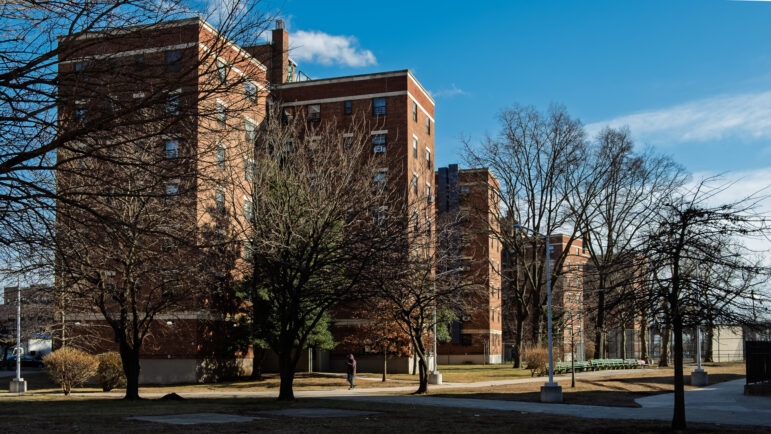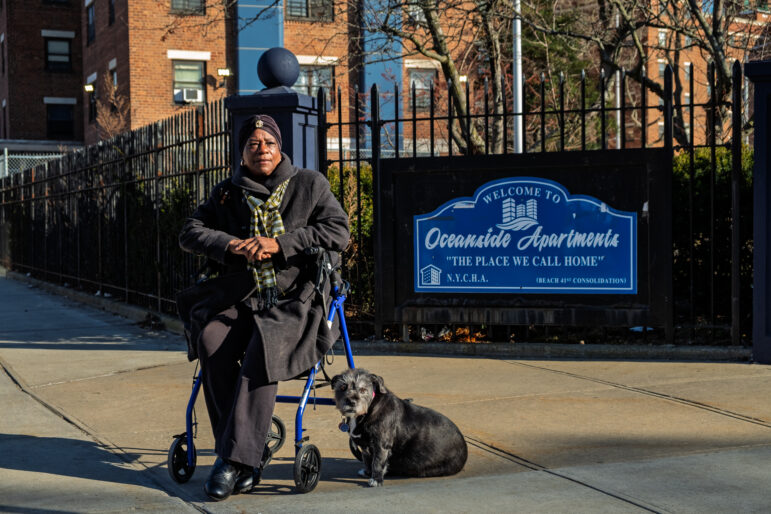When André Smith first went to the soup kitchen at the Broadway Presbyterian Church, all he wanted was a solid meal. Smith, 52, could never have predicted that a year later, he would be selling food out of the church’s south entrance on 114th Street at Broadway.
Smith is one of six soup kitchen regulars who now run the Local Flavor Burrito Shop, a new business venture that aspires to become an independent co-op business. Local Flavor is run by a staff of volunteers, although some of the profits are used to provide a small stipend for workers ranging from $15 per day to $6 per hour, depending on receipts. Although the pay is far from a living wage, BCI hopes that given time, Local Flavor may be able to provide a steady income for people who work there.
Local Flavor is run under the auspices of Broadway Community, Inc. (BCI), a nonprofit organization that rents space for its soup kitchen and women’s shelter at the church. In addition to the soup kitchen, BCI runs a six-week vocational program that trains people like Smith to work as food service professionals.
In the three years since the training program began, there have been about 40 graduates, six of whom went on to culinary schools. Chef Michael Ennes, the director of the vocational program, says six graduates are now working in food service jobs. Other graduates have gotten employment through welfare-to-work programs. A few graduates, like Smith, volunteer at the soup kitchen.
Local Flavor opened in December as a three-week pilot entrepreneurial project. Smith, who used to work in food service before he fell on hard times, was eager to be part of a food service-oriented business venture. BCI staff members, too, had been eager for soup kitchen clients to start a small business. For now it’s a two day-a-week fast food restaurant, open Tuesdays and Thursdays from 11 a.m. to 3 p.m.
John Martin, a student at Union Theological seminary and an intern at BCI, has been in charge of getting the burrito shop off the ground, with the help of Smith and several soup kitchen clients. After the three-week trial, everyone involved agreed Local Flavor had potential as a profit-making venture. Martin says that while Local Flavor strives to make money, the real objective of the business venture is to provide entrepreneurial experience for volunteers like Smith.
So, after a hiatus of about two months, the shop reopened last Tuesday. The first day of business was slow. Chilly weather had potential customers walking briskly past the signs offering burritos. Tina Carter, who works behind the counter serving food, said the shop will probably have to wait a few weeks before it builds up the clientele that it had in December, when the line of customers sometimes curled out the door.
Although they lost some of their customer base during the break, Local Flavor used the time to beef up on materials for the business. Now it has its own steam table for holding vats of rice, beans, vegetables and meat, plus a cash register, tables and a bike for deliveries.
Smith has even devised a new marketing strategy. Last week, he distributed flyers to area libraries and St. Luke’s Hospital. The flyers advertise Local Flavor as a business whose profits return to BCI. His work paid off: one customer, Roly Russell, a 30 year-old post-doctorate student at Columbia, strolled in to get a bean and cheese burrito after spotting a flyer in the library.
Many customers are Columbia University students looking for cheap eats. The most expensive item on Local Flavor’s menu is the $6 beef burrito, making it an affordable place to grab a quick bite.
Nick Camp, a 20 year-old Columbia sophomore who stopped by to get a beef burrito, said he had been eager to sample their offerings, but always arrived at closing time.
“It’s my favorite food,” said Camp, who has struggled to find his good burritos in the neighborhood. “It got so bad I used to walk up to Taco Bell on 125th St,” Camp said.
Local Flavor workers are optimistic about the future of their busines. As the weather gets warmer, they hope to keep the shop open for dinner, maybe even more than two days a week.
“Every business needs luck in the beginning,” Carter said.








